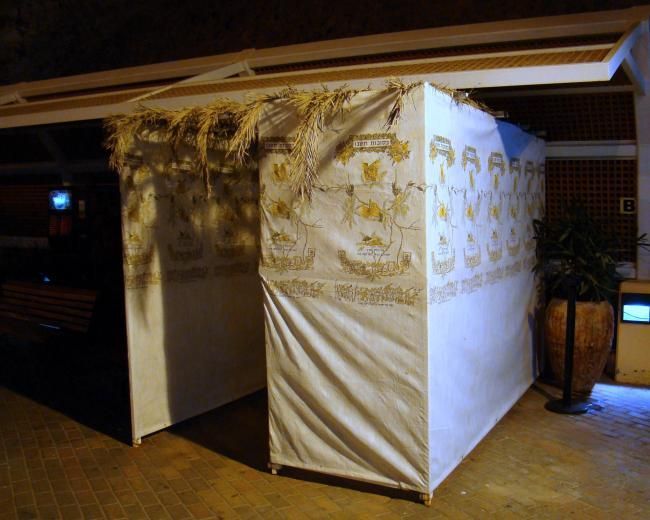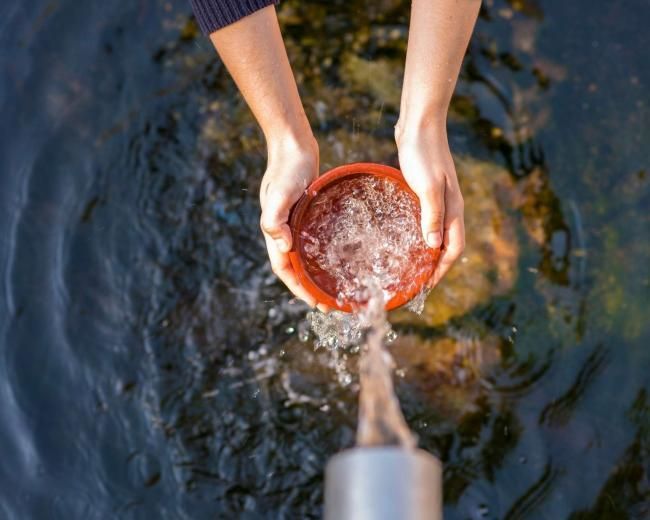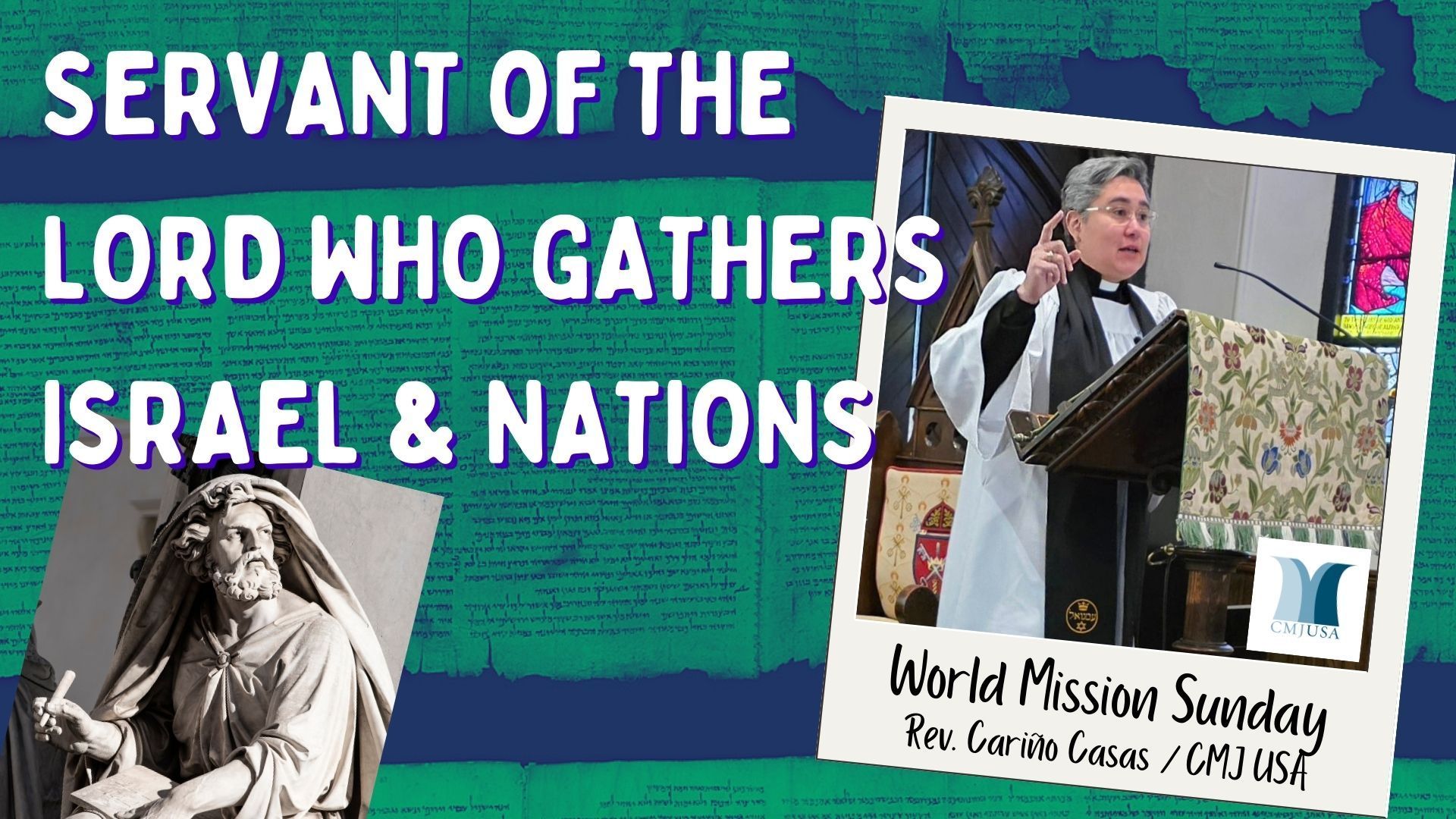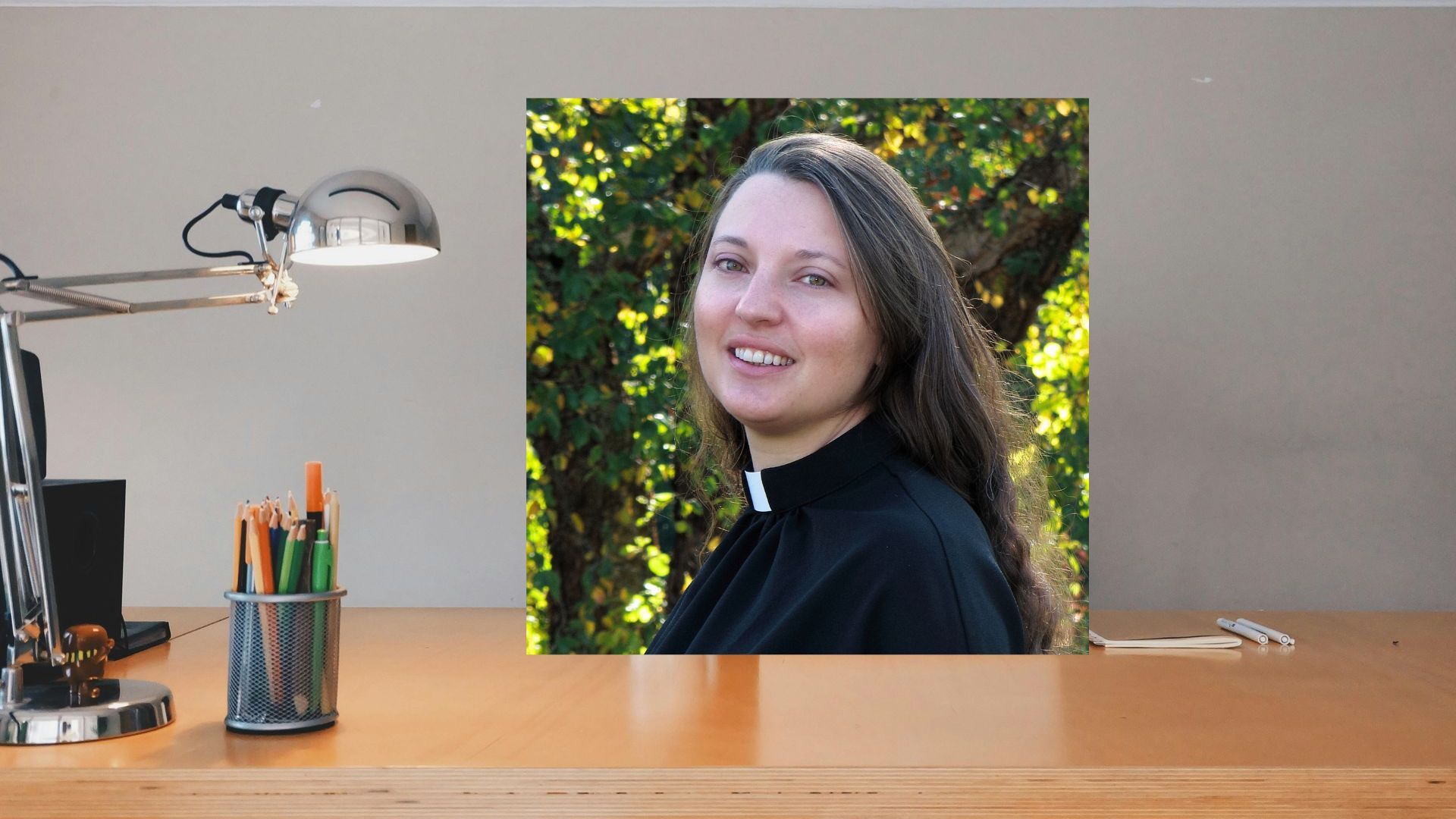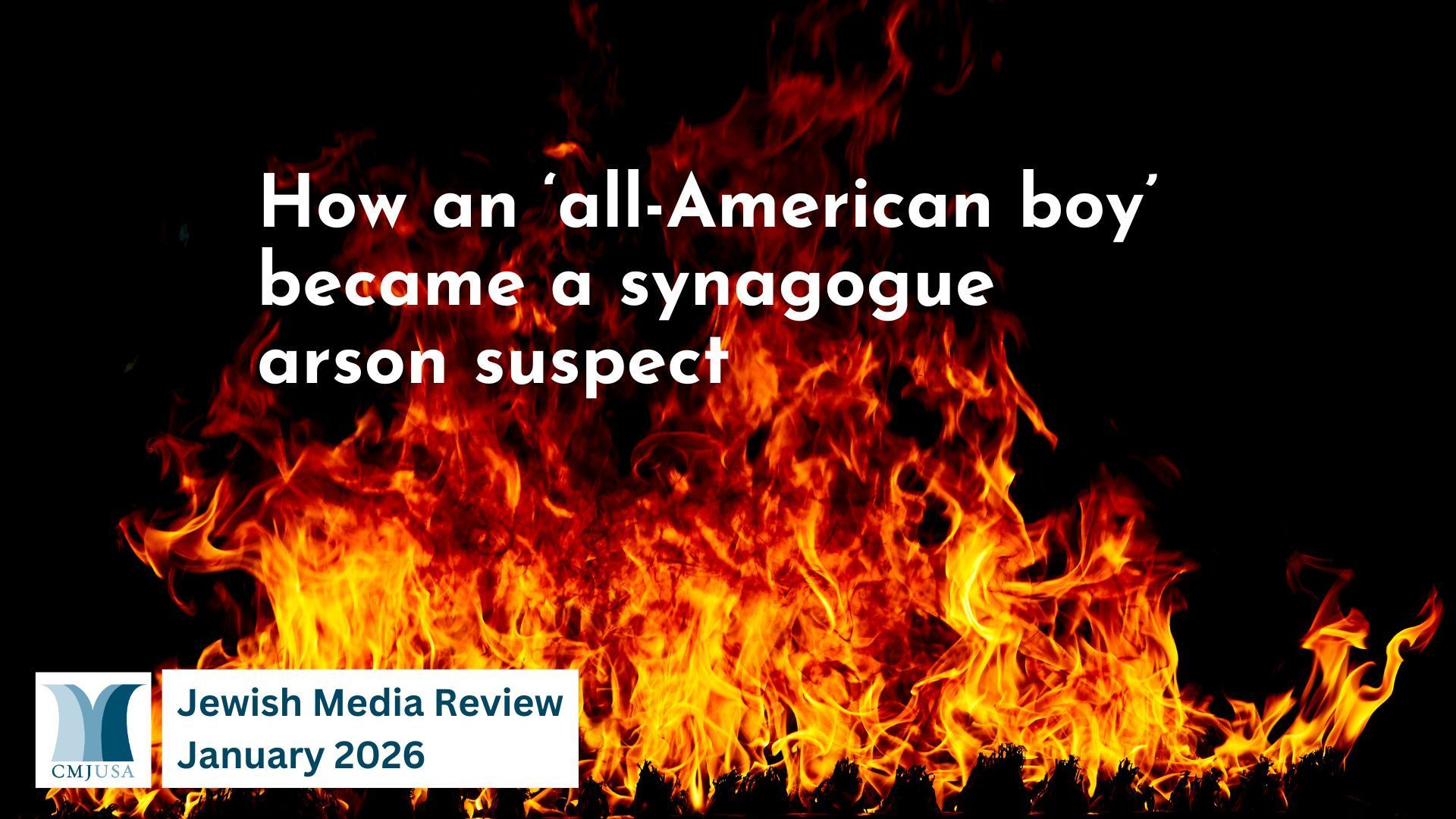Sukkot is primarily observed by building a flimsy booth or
sukkah
and by living in it – or at least eating one’s meals in it – for eight days in remembrance of the 40 years of wandering in the desert, when the LORD provided everything the Israelites needed. The holiday includes the theme of God’s dwelling in glory and light with his people – his “tabernacling with them.” Most of all, Sukkot is full of messianic expectation. It is traditionally believed that Elijah will come to an ordinary Jewish family’s sukkah and announce that Messiah is coming. It is instructive, therefore, that when Moses and Elijah appeared on the mountain as Jesus was transfigured, Peter wanted to build “booths” (Luke 9:28-36)! This has led scholars to believe that the Transfiguration happened at about the time of Sukkot.
Photo: Sukkah at Egyptian border crossing by Anita Gould via Flickr (cc)
Sukkot is primarily observed by building a flimsy booth or sukkah and by living in it – or at least eating one’s meals in it – for eight days in remembrance of the 40 years of wandering in the desert, when the LORD provided everything the Israelites needed. The holiday includes the theme of God’s dwelling in glory and light with his people – his “tabernacling with them.” Most of all, Sukkot is full of messianic expectation. It is traditionally believed that Elijah will come to an ordinary Jewish family’s sukkah and announce that Messiah is coming. It is instructive, therefore, that when Moses and Elijah appeared on the mountain as Jesus was transfigured, Peter wanted to build “booths” (Luke 9:28-36)! This has led scholars to believe that the Transfiguration happened at about the time of Sukkot.
Photo: Sukkah at Egyptian border crossing by Anita Gould via Flickr (cc)
